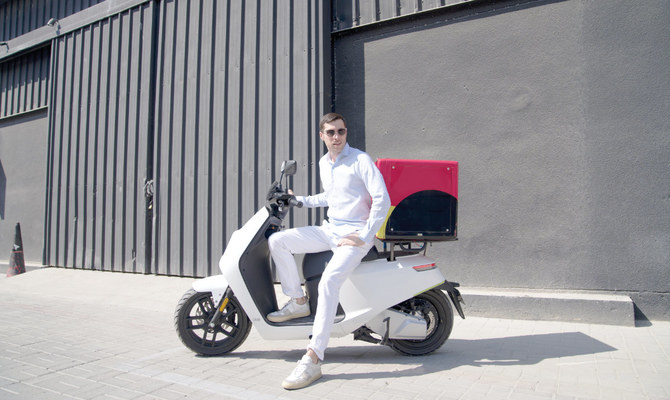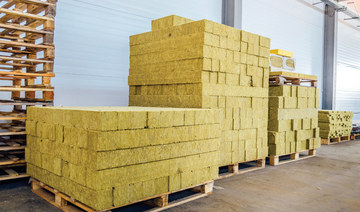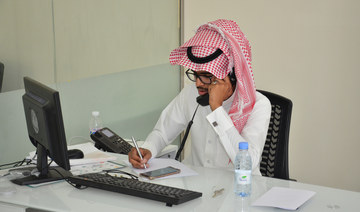CAIRO: The UAE-based eco-friendly mobility startup Wize is set to embark on a strategic expansion into Saudi Arabia following the successful closure of a substantial pre-seed funding round.
Established in 2022 by Alexander Lemzakov, Wize operates as a business-to-business enterprise, tackling the pressing issues of carbon emissions and fuel consumption. The startup specializes in offering sustainable solutions designed to electrify the last-mile delivery sector across the region.
During an interview with Arab News, Lemzakov outlined the company’s roadmap, expressing intentions for Wize to be fully operational in Saudi Arabia by 2024.
“Wize’s expansion into the Saudi market is a strategic move that aligns with the company’s vision for sustainable and efficient delivery services. The Kingdom of Saudi Arabia, with its immense population and growing e-commerce sector, presents a significant growth opportunity for Wize,” Lemzakov said.
He further stated that the Kingdom’s last-mile emissions and fuel costs can be offset with Wize’s electric transportation solutions which have reported a 30 percent reduction on monthly costs.
“Wize’s solutions help local delivery and retail businesses achieve eco-efficiency, meet Saudi Arabia’s net-zero requirements, and strengthen its decarbonization and clean energy collaborations,” Lemzakov said.
“Wize’s primary focus in Saudi Arabia is to revolutionize last-mile delivery into a sustainable option, addressing environmental concerns and business challenges,” he added.
Wize offers a diverse array of sustainability-focused services. These include renting out electric motorcycles for businesses, a subscription-based platform enabling businesses to efficiently manage their electric vehicle fleets, and solutions in battery-as-a-service and battery swapping.
Eco-Delivery Expansion
Wize has focused its efforts on enhancing its entry into the Saudi market by forging strategic partnerships with third-party logistics providers and companies specializing in last-mile delivery.
“Wize’s fleet of electric motorcycles reduces the environmental impact of deliveries and offers a safer mode of transportation than traditional delivery vehicles. By leveraging innovative technology, we can implement speed restrictions in specific city areas to prioritize pedestrian safety while maintaining efficient delivery speeds on major highways,” Lemzakov said.
“Furthermore, Wize strategically positions swapping stations within warehouses and dark stores, enabling couriers to exchange batteries and pick up orders simultaneously seamlessly. This streamlined process significantly reduces delivery time and downtime, ensuring prompt and efficient deliveries across the city,” he added.

Wize gauges its success by the growing number of partnerships. (Supplied)
Moreover, Wize has initiated discussions about potential collaborations with the Saudi government to improve delivery services within the Kingdom.
Lemzakov emphasized that these partnerships would be instrumental in promoting the adoption of electric vehicles in Saudi Arabia and in enhancing the supporting EV infrastructure.
A strategic Kingdom
“Wize’s expansion into the Saudi market is a strategic move that aligns with the company’s vision for sustainable and efficient delivery services. The Kingdom of Saudi Arabia, with its immense population and growing e-commerce sector, presents a significant growth opportunity for Wize,” Lemzakov said.
“The Saudi government’s emphasis on environmentally friendly transportation aligns perfectly with Wize’s commitment to reducing its environmental impact. Together, Wize and the Saudi government can contribute to creating a more sustainable and eco-conscious transportation landscape,” he added.
As part of its electric fleet division, Wize Power, the company is planning to introduce a variety of new products and services in the Saudi market.
“One of the most significant upcoming developments is installing a network of battery-swapping stations across Saudi Arabia and the UAE. These stations will enable drivers to quickly and easily exchange batteries for fully charged ones, significantly reducing downtime,” Lemzakov said.
“Additionally, Wize Power has developed the Battery Swap App, a user-friendly mobile application that allows EV drivers to locate and reserve batteries in advance seamlessly find and reserve batteries in advance,” he explained.
Wize has pledged to comply with the Kingdom’s stringent regulatory framework, reinforcing its reputation as a dependable electric vehicle provider in the region, Lemzakov stated.
Business foundations
Wize gauges its success by the growing number of partnerships and the escalating demand for sustainable solutions in the last-mile delivery sector.
“One key metric is the number of kilometers traveled on eco-friendly motorcycles. For instance, one motorcycle can be used by several couriers, and then it will travel around the clock. So, the more kilometers of delivery we can provide with electric transport, the cleaner air in the city will be,” Lemzakov added.
Wize is financially well-equipped to accelerate its expansion efforts, having secured $16 million in a pre-seed funding round this past November.
Additionally, Lemzakov revealed that a considerable portion of this funding is earmarked for regional growth initiatives, with a focus on extending the company’s reach into Saudi Arabia.
He also mentioned that while Wize remains open to exploring further funding opportunities, these efforts are expected to intensify in the upcoming year.
Moreover, Wize has established a solid business model designed to cater to the needs of modern fleet management.
Central to their revenue streams are the rental and subscription platform for businesses and a battery-as-a-service model with convenient swapping stations.
Another key component of their revenue generation is the cloud-based SaaS solution, designed for comprehensive fleet management. This platform, which tracks vehicle inventory, condition, and operational metrics, is available as a white-label solution for businesses.
Furthermore, Wize has recently formed a long-term partnership with Motoboy, one of the leading sustainable logistics companies in the region.
The partnership results in Wize acquiring 50 percent ownership in Motoboy, while also facilitating access to a shared client base.
Lemzakov disclosed that a major online food delivery service in the region, especially prominent in Saudi Arabia, is currently trialing Wize’s services. He noted that the name of this company will be announced in the coming month.
Lemzakov’s motivation for founding Wize was driven by the expanding online food delivery market, which is projected to grow annually by 9.28 percent in Saudi Arabia, coupled with the pressing issue of carbon emissions.
“As a co-founder, I have always been driven by a desire to create something meaningful that positively impacts the region and empowers local businesses to achieve sustainable growth. Alongside my co-founder, we recognized the pressing challenges posed by extreme weather conditions, climate change, and the rapid expansion of the retail industry in the Gulf Region,” Lemzakov stated on the inspiration behind Wize.
“Embarking on a journey toward a more sustainable future, we engaged local businesses to gauge their perspectives on electric motorcycles. After that, we got hundreds of responses, fueled by the community’s eagerness to embrace eco-friendly solutions. This marked the genesis of Wize,” he added.





























